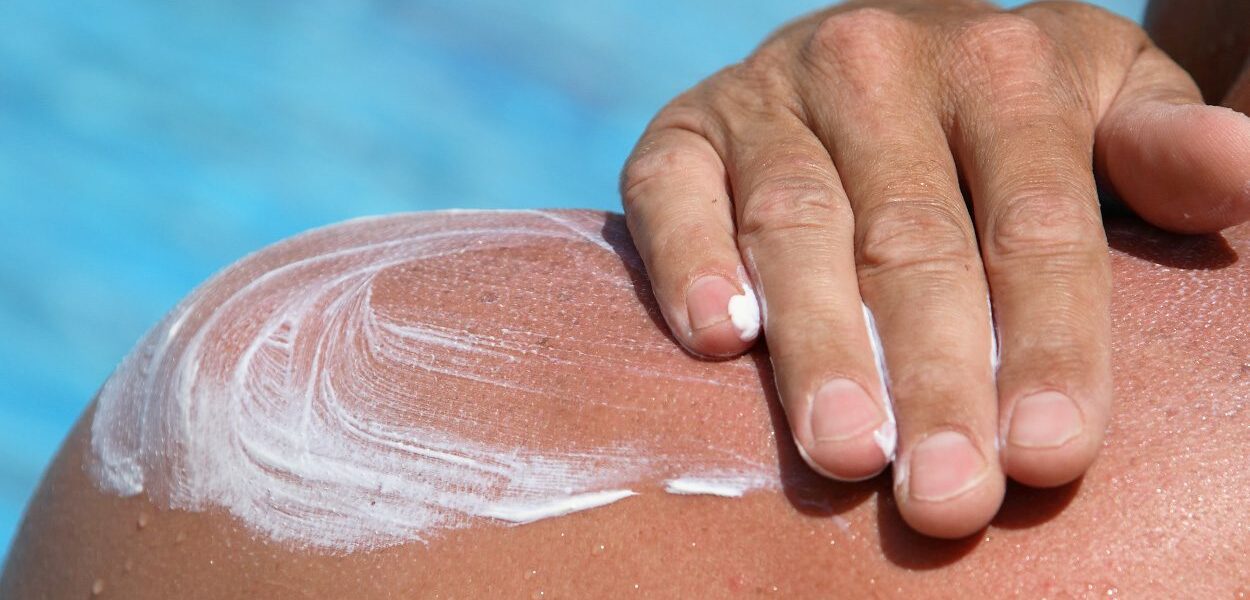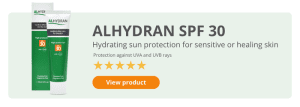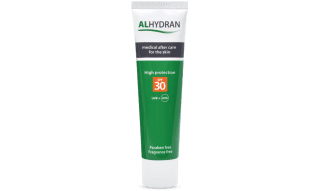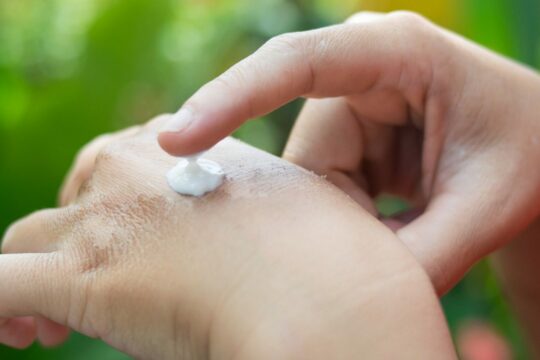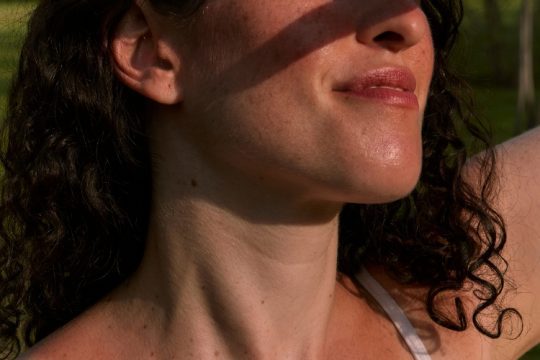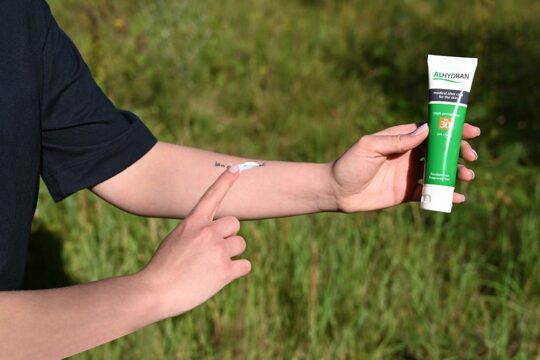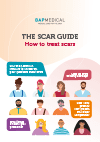Sun cream for sensitive or damaged skin
Your skin can become sensitive for many reasons. Sometimes it’s naturally reactive, but it can also result from various skin conditions or treatments that weaken the skin barrier. Sensitive and damaged skin needs more than a regular cosmetic SPF. It requires sun protection that calms, hydrates, and helps repair the skin barrier. That’s where ALHYDRAN SPF 30 comes in: a sun cream designed for recovery, not just protection.
Before we look at how ALHYDRAN SPF 30 helps, it’s useful to understand why sensitive or damaged skin needs extra protection from the sun.
Why sensitive skin needs special sun protection
After your skin has been weakened or irritated, such as by burns, eczema, scarring, or medical treatment, the upper layers can remain fragile for months. It loses moisture more easily, leading to dryness, tightness and irritation.
Because of this fragility, sunlight can make the problem worse. Sensitive, damaged or healing skin reacts faster to sunlight and UV radiation, because skin barrier hydration is reduced after injury.
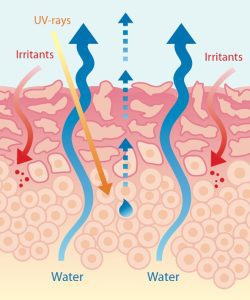
A weakened skin barrier loses moisture more easily and allows UV rays and irritants to penetrate deeper.
Even on cloudy days, up to 40% of UV rays reach the skin, and for healing skin, these rays can penetrate deeper, increasing the risk of discoloration and long-term damage.
Both UVA and UVB rays can harm vulnerable skin: UVA causes deeper ageing and DNA damage, while UVB leads to surface burns and irritation.
But protecting sensitive skin is not just about blocking the sun. It’s about supporting recovery too. This is why a medical moisturising cream is key for protecting and restoring sensitive skin.
A moisturising cream for sensitive skin: sun protection and recovery
After your skin has been damaged or irritated, it needs more than just sun protection. It needs deep, long-lasting hydration, not only to soothe the surface, but to help your skin recover from within.
Most creams simply add moisture from the outside. A truly effective medical moisturising cream does more: it helps your skin keep that moisture inside.
This is what experts call occlusion and hydration. In simple terms: the cream locks in moisture and prevents it from escaping. That balance keeps your skin soft, calm and elastic, even while it heals.
The strength behind this effect lies in fresh Aloe Vera gel. Unlike many creams that use dried concentrate, the Aloe Vera in ALHYDRAN SPF 30 is harvested on Aruba and processed within 24 hours, keeping all active nutrients intact. It is the first ingredient in the formula, not water (aqua).
That means your skin receives the full benefit of Aloe Vera’s natural soothing, cooling and regenerating properties.
Together with natural oils and vitamins, this unique Aloe Vera base forms a protective layer that keeps the skin barrier hydrated, helps reduce redness and itching, and supports healthy recovery after burns, eczema or other skin conditions.
Why SPF 30 is the right level of protection
SPF 30 offers high, broad-spectrum protection, blocking about 97% of UVB radiation. SPF 15 blocks around 93%, and SPF 50 about 98%.
The difference is minimal, yet higher factors can give a false sense of total protection.
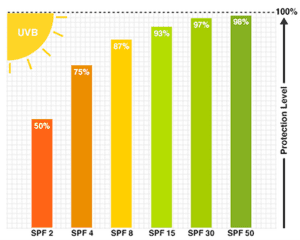
Dermatologists and European scar care guidelines recommend at least SPF 30 for healing or sensitive skin.
It provides reliable protection without overloading the skin, helping prevent discolouration and long-term UV damage while keeping the skin barrier balanced and comfortable.
Summary
Sensitive skin deserves more than ordinary sunscreen. If your skin has been affected by burns, eczema or other conditions, a medical sun cream offers both protection and recovery.
ALHYDRAN SPF 30 is formulated to restore the skin barrier, reduce irritation and maintain skin hydration in the sun.
References
- Hoeksema, H., & Monstrey, S. (2013). Scar management by means of occlusion and hydration: A comparative study of silicones versus a hydrating gel-cream. Burns, 39(7), 1437–1448.
- Klotz, T., Kurmis, R., Munn, Z., Heath, K., & Greenwood, J. E. (2017). Moisturisers in scar management following burn: A survey report. Burns, 43(6), 965–972.
- Rondas, A. A. L. M., Vestjens, J. A., & Schols, J. M. G. A. (2016). ALHYDRAN: A new option in the treatment of hypostatic eczema. Poster presented at the World Union of Wound Healing Societies (WUWHS), Florence, Italy.
- Monstrey, S., & Hoeksema, H. (2007). Two years experience with a new product for the hydration of burn scars. European Burns Association Congress, Budapest.
- BAP Medical (2024). Internal educational slides on SPF, UV filters and medical sun protection (ALHYDRAN SPF 30).
